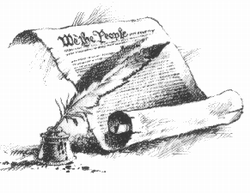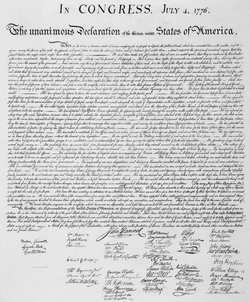New Jersey Legislature Ran Out of Time Before They Could Smack
Pilots
 New Jersey pilots have won a
reprieve from a proposed background check law when state senators
adjourned without ever taking the measure up. AOPA representatives
in Trenton lobbied hard to convince the state senate's leadership
not to bring the bill up for a vote; and AOPA urged its New Jersey
members to contact their representatives and senators and urge them
to oppose the bill.
New Jersey pilots have won a
reprieve from a proposed background check law when state senators
adjourned without ever taking the measure up. AOPA representatives
in Trenton lobbied hard to convince the state senate's leadership
not to bring the bill up for a vote; and AOPA urged its New Jersey
members to contact their representatives and senators and urge them
to oppose the bill.
At least one senator acknowledged rethinking
his position after hearing from constituents.
"The federal government must be allowed to set a uniform
standard for pilot qualifications without interference from the
states if we're to have a truly national air transportation
system," said AOPA Senior Vice President for Government and
Technical Affairs Andy Cebula.
"New Jersey can't set one standard and Michigan another."
Senators spent all night trying to resolve the
state's budget impasse and never took up the background check bill,
in effect holding it until they return for a lame-duck session
following elections in November.
 "That's good news for pilots,"
said Cebula.
"That's good news for pilots,"
said Cebula.
"It gives AOPA and our members all summer to convince the
senators that the background check would be bad law, since it would
violate the supremacy clause of the U.S. Constitution."*
AOPA representatives plan to make good use of the time,
explaining to the senators all the steps the federal government has
taken since the September 11 terrorist attacks to enhance general
aviation security, making the proposed New Jersey law unnecessary
as well as unconstitutional.
AOPA is determined not to let the bill become law.
"AOPA took Michigan to federal court over its pilot criminal
background check law and is fully prepared to do the same if New
Jersey ultimately adopts this bill," Cebula said.

*[Editor's note] Since Independence Day is near, we thought
you'd be able to bear some background: The part of Article VI
to which Mr Cebula refers reads, "This Constitution, and the
laws of the United States which shall be made in pursuance thereof;
and all treaties made, or which shall be made, under the authority
of the United States, shall be the supreme law of the land; and the
judges in every state shall be bound thereby, anything in the
Constitution or laws of any State to the contrary
notwithstanding." Note that it asserts supremacy only in cases
where the federal law in question is, itself, constitutional. There
is growing literature starting to question whether Congress must,
as the Constitution says, make the laws; or whether it can delegate
its authority to other bodies, such as the FAA (and the dozens of
other agencies). The intent was to keep Congress focused on what
was important enough to write law about -- not to allow Congress to
erect "a multitude of New Offices, and sen[d] hither swarms of
Officers to harass our people, and eat out their substance," cited
as a justification for revolution in the
Declaration of Independence.
 ANN's Daily Aero-Term (11.29.25): Waypoint
ANN's Daily Aero-Term (11.29.25): Waypoint ANN's Daily Aero-Linx (11.29.25)
ANN's Daily Aero-Linx (11.29.25) NTSB Prelim: Jabiru USA Sport Aircraft LLC J230-SP
NTSB Prelim: Jabiru USA Sport Aircraft LLC J230-SP Classic Aero-TV: Crafting The Future of eVTOL Infrastructure
Classic Aero-TV: Crafting The Future of eVTOL Infrastructure Klyde Morris (11.28.25)
Klyde Morris (11.28.25)





